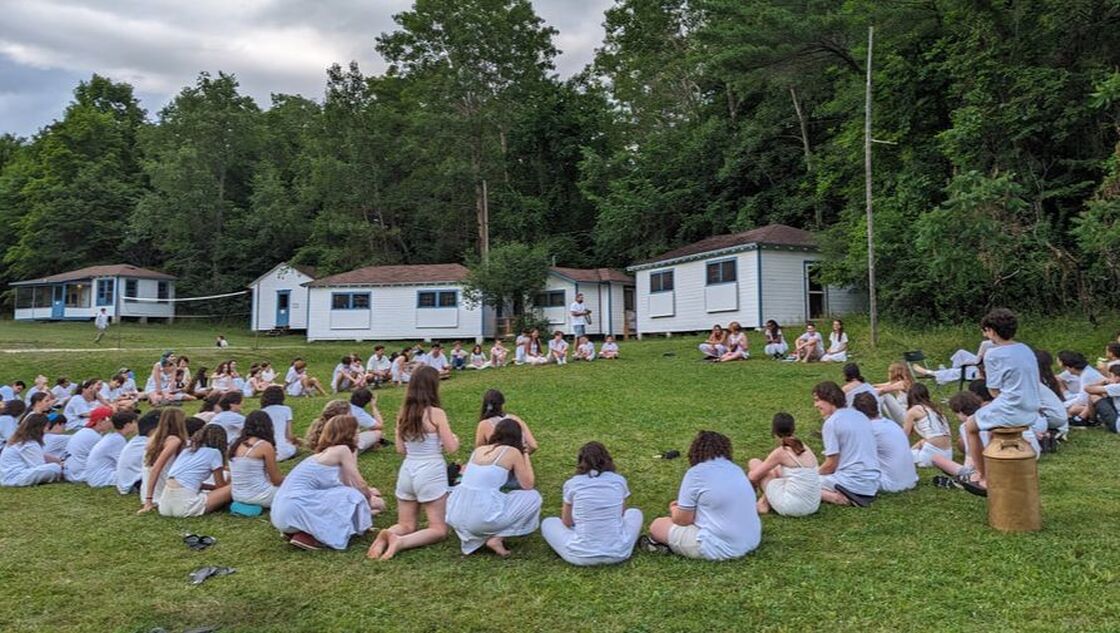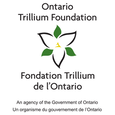Mission and Values.
Mission Statement.
We offer the highest quality informal education to prepare young people for real life, as they practice leadership skills, advocate for social and environmental justice, and build connection to progressive Jewish values and Israel.
In our youth-led community, our chanichimot build life-long friendships as they take ownership over their experience, as they develop their sense of agency and responsibility for shaping the world in accordance with their values.
In our youth-led community, our chanichimot build life-long friendships as they take ownership over their experience, as they develop their sense of agency and responsibility for shaping the world in accordance with their values.
Principles of life at camp.
Youth Leading Youth
Camp Shomria reflects the basic principles of the Hashomer Hatzair youth movement, at the centre of which is a belief in the value and practice of youth-leading-youth. As chanichimot (campers) and madrichimot (counsellors) grow in age, stage, and experience at camp, they are encouraged to become more independent and demonstrate greater responsibility for themselves and others. Older chanichimot, and madrichimot, are expected to function as role models, setting an example for those who are learning from them. This ongoing educational process is fundamental to the Camp Shomria experience and is part of the reason we are well known as one of Ontario’s greatest Jewish camps in developing strong youth leaders from a young age.
We place great emphasis on empowering our campers to take initiative by making meaningful decisions and taking responsibility for projects both individually and collectively. We provide campers with a multitude of opportunities to lead and to teach their skills and interests to others. Our staff are not only great caregivers, but they are remarkable mentors, educators, and facilitators who can help other youth become great leaders.
We place great emphasis on empowering our campers to take initiative by making meaningful decisions and taking responsibility for projects both individually and collectively. We provide campers with a multitude of opportunities to lead and to teach their skills and interests to others. Our staff are not only great caregivers, but they are remarkable mentors, educators, and facilitators who can help other youth become great leaders.
Jewish Life Through a Cultural Lens
Our camp community is diverse and includes many Jewish (and non-Jewish backgrounds). Judaism at camp centres Jewish culture and a humanistic approach. While at camp, campers will have the opportunity to learn and explore Jewish songs, dance, art, and history, participate in meaningful shabbat celebrations, and explore their own Jewish identities and learn from the experiences of others. It is our hope that chanichimot leave camp having deepened their personal identity and sense of belonging to a meaningful and vibrant Jewish community.
As a Jewish camp and movement we are committed to fostering a meaningful connection with Israel and the movement for peace and solidarity and an end to the occupation. Campers have a unique opportunity to connect with our Heart to Heart program participants, a group of Jewish and Palestinian citizens of Israel who participate in a leadership program which runs concurrently with Camp Shomria. Heart to Heart equips its participants with relationships, skills and tools to work in solidarity across lines of difference to create more just and inclusive societies.
As you can seen in our ‘Key Terms at Camp’ above, campers will also have an opportunity to hear and be exposed to Hebrew while at camp - no previous knowledge required!
As a Jewish camp and movement we are committed to fostering a meaningful connection with Israel and the movement for peace and solidarity and an end to the occupation. Campers have a unique opportunity to connect with our Heart to Heart program participants, a group of Jewish and Palestinian citizens of Israel who participate in a leadership program which runs concurrently with Camp Shomria. Heart to Heart equips its participants with relationships, skills and tools to work in solidarity across lines of difference to create more just and inclusive societies.
As you can seen in our ‘Key Terms at Camp’ above, campers will also have an opportunity to hear and be exposed to Hebrew while at camp - no previous knowledge required!
Learning and Living Unplugged
Being at camp is an opportunity to unplug and get back to basics. Most of our time is spent outdoors, enjoying nature, participating in creative games and programming, and taking the time to think, breathe, connect with others, learn and grow.
Chinuch (education) is a major part of our program, involving informal discussions and activities that provide chanichimot with an understanding of historical and current events and social issues to help them develop into socially conscious members of the Jewish and global community. Each kvutza has its own age-appropriate curriculum that explores Hashomer Hatzair’ values and pillars and creates an opportunity for exploring their relevance in today’s world. Chanichimot are encouraged to be active in shaping their own educational experience by raising topics of interest and choosing activities that align with their areas of interest and curiosity.
Kef (fun) is core to daily life at Camp Shomria. Education, social development, and the formation of lifelong friendships all take place in an atmosphere that encourages chanichimot (campers) to truly enjoy the summer. Fun at camp is often low-tech and gets campers and staff of every age engaging imaginatively and with plenty of opportunities for humour and silliness.
Teva, Tiyul, and Tzofiut (nature, tripping, scouting) find their way into daily life and programming at camp in ways big and small. Our goal is to foster love of the outdoors, self-reliance and good teamwork. Our diverse programming includes swimming, hiking, and camping skills.
Chinuch (education) is a major part of our program, involving informal discussions and activities that provide chanichimot with an understanding of historical and current events and social issues to help them develop into socially conscious members of the Jewish and global community. Each kvutza has its own age-appropriate curriculum that explores Hashomer Hatzair’ values and pillars and creates an opportunity for exploring their relevance in today’s world. Chanichimot are encouraged to be active in shaping their own educational experience by raising topics of interest and choosing activities that align with their areas of interest and curiosity.
Kef (fun) is core to daily life at Camp Shomria. Education, social development, and the formation of lifelong friendships all take place in an atmosphere that encourages chanichimot (campers) to truly enjoy the summer. Fun at camp is often low-tech and gets campers and staff of every age engaging imaginatively and with plenty of opportunities for humour and silliness.
Teva, Tiyul, and Tzofiut (nature, tripping, scouting) find their way into daily life and programming at camp in ways big and small. Our goal is to foster love of the outdoors, self-reliance and good teamwork. Our diverse programming includes swimming, hiking, and camping skills.
Collaborative and Inclusive Community
Camp is about creating a place for everyone to be themselves and explore who they are and who they want to be. It’s a chance to try new things with the support of their peers, to strengthen communication skills, take responsibility for ourselves, one another, and our shared environment, and to work together toward common goals. We have a deep commitment to anti-bullying through proactive relationship building and fostering respect and the skills to demonstrate it.
Chevrah (group living) is a core part of the camp experience and cultivates a sense of social responsibility and the skills to live in community. We are proud to have three cabin options (girls, boys, and all gender) for chanichimot (campers) to choose from when they register for camp. Each cabin group will collaboratively create safer space guidelines to ensure everyone’s diverse needs are considered and supported while together at camp. These will be reviewed and used as a tool of reflection and accountability and may be adjusted as needed to stay relevant and change along with the group’s development.
Avoda and Anafim (work and chores) is a value that runs throughout time at camp and how we begin every day as a practice of care and ownership. Chanichimot engage in activities that demonstrate the importance and value of working together to maintain their environment. For example, each kvutza (group) is given a daily chore. This includes taking care of mosh facilities and grounds, working on the gardens, and keeping their own tzrifim (cabins) tidy.
Shituf (cooperation) is a core value at Camp Shomria. We encourage the ideals and practices of cooperation and sharing. For example, each kvutza has a kupa (communal fund), which is used for extra activities or purchases that the group decides on together. In this way, resources are shared within the kvutza. Chanichimot have the opportunity to learn about equality and equity and to explore concepts of budgeting and resource management at an age and stage appropriate level. Please see below for more information on kupa.
Chevrah (group living) is a core part of the camp experience and cultivates a sense of social responsibility and the skills to live in community. We are proud to have three cabin options (girls, boys, and all gender) for chanichimot (campers) to choose from when they register for camp. Each cabin group will collaboratively create safer space guidelines to ensure everyone’s diverse needs are considered and supported while together at camp. These will be reviewed and used as a tool of reflection and accountability and may be adjusted as needed to stay relevant and change along with the group’s development.
Avoda and Anafim (work and chores) is a value that runs throughout time at camp and how we begin every day as a practice of care and ownership. Chanichimot engage in activities that demonstrate the importance and value of working together to maintain their environment. For example, each kvutza (group) is given a daily chore. This includes taking care of mosh facilities and grounds, working on the gardens, and keeping their own tzrifim (cabins) tidy.
Shituf (cooperation) is a core value at Camp Shomria. We encourage the ideals and practices of cooperation and sharing. For example, each kvutza has a kupa (communal fund), which is used for extra activities or purchases that the group decides on together. In this way, resources are shared within the kvutza. Chanichimot have the opportunity to learn about equality and equity and to explore concepts of budgeting and resource management at an age and stage appropriate level. Please see below for more information on kupa.
Our Three Pillars.
As part of the worldwide Hashomer Hatzair movement, we are grounded in the three pillars of the movement. While these pillars have evolved over time in their meaning and interpretation, they consistently serve as a link between generations of Shomrimot and to our friends and partners around the world.
Socialism
We believe that all people deserve to live in a society that treats them with humanity (and not merely as capital) and empowers them to live their best lives. This positions us in opposition to all oppressive forces that systemically reinforce inequality and exploitation of peoples and resources. In practice we imagine a society where all people have a strong sense of community and can flourish as individuals. This is the vision we are working towards, so that all people may one day be free to pursue projects that bring them purpose and be able to participate equally in our democracy and civic society.
At camp, we practice this value in the form of communal living, free from the pulls of materialism and consumerism. Additionally, each age group (kvutza) forms a shared fund (kupa) that they collectively decide how to spend, whether on their trips into town or for their end of summer party (mesiba). The fund itself is entirely communal no matter how much any individual camper (chanichol) contributes. Beyond that, campers engage in activities where they gain exposure to contemporary injustices and challenge each other to consider what it means to be an activist in our time.
At camp, we practice this value in the form of communal living, free from the pulls of materialism and consumerism. Additionally, each age group (kvutza) forms a shared fund (kupa) that they collectively decide how to spend, whether on their trips into town or for their end of summer party (mesiba). The fund itself is entirely communal no matter how much any individual camper (chanichol) contributes. Beyond that, campers engage in activities where they gain exposure to contemporary injustices and challenge each other to consider what it means to be an activist in our time.
Progressive Zionism
We believe all peoples deserve the right to self-determination. For many decades, Shomrimot manifested this connection through aliyah (moving to Israel) and founding kibbutzim. Today, our focus is more on having our chanichimot appreciate the power they have to shape a vision for Israel's future which advances equality and justice for all. As with all our educational content, we believe young people have the ability to understand complex issues and form their own opinions, and so we ensure that each camper is fluent in dialogue about Israel, and feel a sense of connection and responsibility for this collective project of the Jewish people.
Some might say our camp is like a little kibbutz. The spirit of connection to land, building something with your hands, the rugged communal lifestyle, it's all part of our DNA. Camp culture includes Israeli folk music and dancing, Israeli food, and the Hebrew language. And with year after year of dynamic educational activities on the topic, opportunities to travel to Israel and connection with Israelis and Palestinians on the ground working in solidarity toward a shared future grounded in justice, peace, and freedom for all, our progressive take on Zionism isn't just discussed, it's lived.
Some might say our camp is like a little kibbutz. The spirit of connection to land, building something with your hands, the rugged communal lifestyle, it's all part of our DNA. Camp culture includes Israeli folk music and dancing, Israeli food, and the Hebrew language. And with year after year of dynamic educational activities on the topic, opportunities to travel to Israel and connection with Israelis and Palestinians on the ground working in solidarity toward a shared future grounded in justice, peace, and freedom for all, our progressive take on Zionism isn't just discussed, it's lived.
Humanist Judaism
We believe in expressing our Jewish values through Tikkun Olam (repairing the world) and Tikkun Adam (repairing the self). This is rooted in the belief that neither of these will ever be complete and therefore they must occur in parallel, informing one another, as the personal development shapes one’s contribution to the world and in turn one’s impact shapes their sense of self. We encourage every member of our community to do what brings them meaning, and while we as an organization are humanistic, we welcome all forms of practice, and hold space for those who want to do the traditional Friday night prayers to do so prior to the shabbat meal.
At camp, our priority is to support our campers to develop a strong sense of identity and connection to their roots, and even if they’re not Jewish, to gain an appreciation of the rich history and traditions that serve as a source of inspiration and universal wisdom. By embedding Jewish art, food, history, and language in the fabric of our camp, we ensure all our campers are able to find their place in the Jewish community and feel connected to their cultural heritage.
At camp, our priority is to support our campers to develop a strong sense of identity and connection to their roots, and even if they’re not Jewish, to gain an appreciation of the rich history and traditions that serve as a source of inspiration and universal wisdom. By embedding Jewish art, food, history, and language in the fabric of our camp, we ensure all our campers are able to find their place in the Jewish community and feel connected to their cultural heritage.








